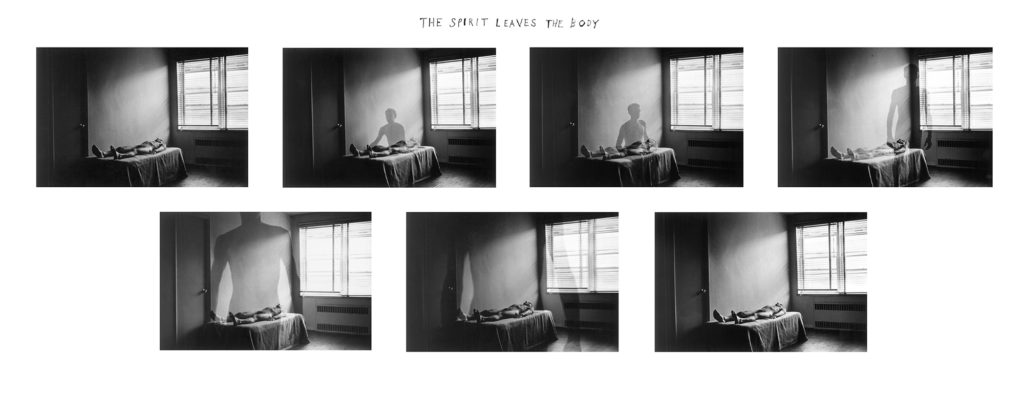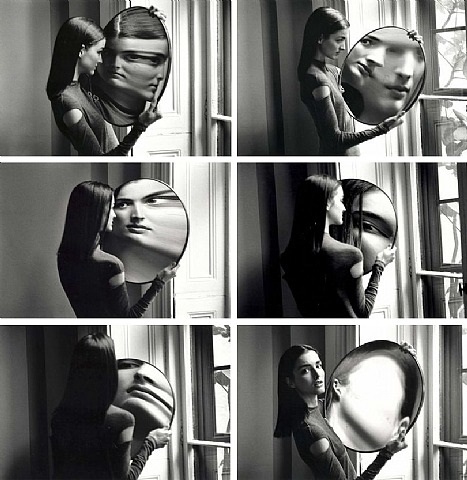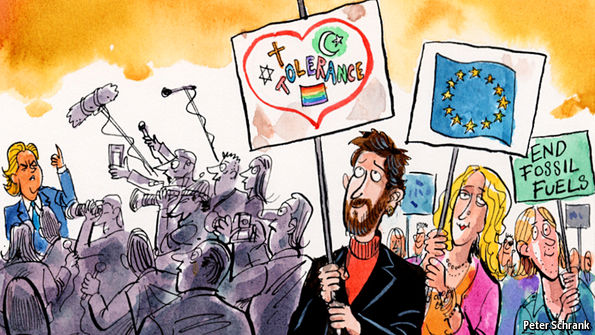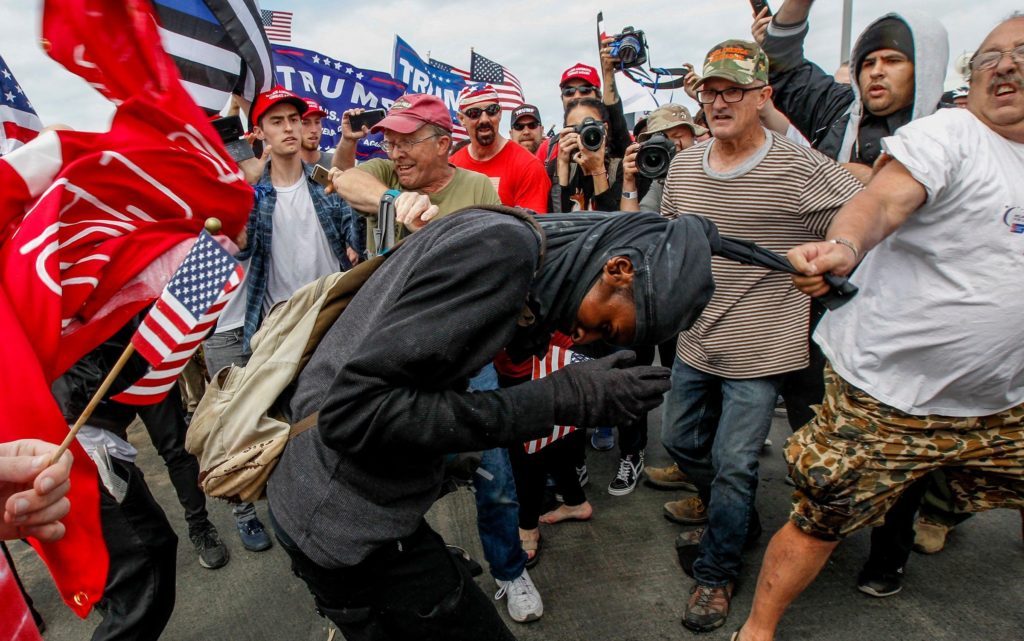A comparative study between Claude Cahun and a contemporary photographer.

Shannon O’Donnell





A zine is defined as a product of an individual person or small group of people with the main purpose of exposure or raising awareness of an issue, or simply spreading your own work in a more put-together and professional way. The content of a zine isn’t limited to photography, and the concept of a zine is also used in illustration and design. (also historically forming the basis for comic books)
“A photography zine, for example, is a tool that photographers can use to tell a visual story, to inform an audience about a specific topic or issue, to showcase and advertise a new idea or simply create a preview of an ongoing project.”
There aren’t any set rules for making a photo zine, any theme or topic can become a zine as a form of creativity and self-expression. As a result, they can be very personal to the photographer or tackle sensitive subjects in the zine, often bordering on topics to do with family, personal trauma, mental health or childhood.
My zine is based off two shoots, one angel scene, and one mirror scene, both with different but singular characters. My black and white mirror scene is inspired by the work of Duane Michals, an american sequence photographer.


Duane Michals, widely known for his work with series, multiple exposures, and text, first made creative strides in photography during the 1960s. Michals famous sequnces are an appropriate cinema’s frame-by-frame format, creating a narrative that plays out through one consequent scene.
He has been awarded with many prestigious awards such as a CAPS Grant (1975), the International Center of Photography Infinity Award for Art (1989), and an Honorary Doctorate of Fine Arts from Montserrat College of Art, Beverly, Mass. (2005).
I’ve decided to base my zine shoot of this sequence of Michals, which is one scene of a woman looking into a mirror but her reflection is contorted and stretched, creating an unrealistic image. It fits my narrative with the angel, representing a somewhat nightmarish scene which would call for the ‘guardian angel’ to appear. Perhaps it is all a dream or maybe just a visual representation of inner turmoil in the character.

Identity politics: A political approach whereby people of a particular religion, race, social background, class or other identifying factor (usually minorities) follow and support political movements that share this quality with them

Culture wars: Cultural conflicts between social groups and the struggle for dominance of their values, beliefs, and practices.

Examples of culture wars: For example, the clash between gay marriage advocates and conservative religious groups in the United States is a major culture war.
Similarly, the conflict between religion (pro-life) and abortion advocates is another culture war.
Positive impacts of groups harnessing their identity and views:
Identity politics and the privilege lens have many good effects. They have made students more sensitive and attuned to each other, and attuned to structural discrimination and bias issues. Students, teachers, and politicians who use the privilege lens are less likely to trade in generalizations and stereotypes of marginalized groups (although they may trade in stereotypes of dominant groups). Because of these lenses, many do a better job creating atmospheres that are inclusive to individuals of a wide range of identity groups that have been marginalized or excluded from important conversations. These effects have been important for a broadened perspective in our academic discourse.
Negative Impacts of identity politics:
Identity politics is now affecting our daily language. For example, following Britain and USA’s issues with immigration, the use of the term ‘migrant’ has become politically charged with negative connotations and has turned into a discriminatory and unfair title used against those seeking refuge. These connotations equate migrants with threats and fuel xenophobia, also leading to racism against British or American citizens that identify as the same race as these migrants or look similar to them.
Global culture wars
In America, the war between reversing climate change and maintaining the economy has caused extreme conflict within their society.
Additionally, Russia has a major culture war between same-sex married couples and more ‘traditional’ heterosexual couples. Russia’s tyrannt dictator, Putin, has removed same sex couple of their right to adopt children.
https://www.firstthings.com/article/2014/04/global-culture-wars
Identity politics is a term that refers to a political approach wherein people of a particular race, religion, social background, class or other identifying factor from exclusive socio-political alliances, moving away from broad-based, coalitional politics to support and follow political movements that share a particular quality identifying with them. It’s main aim is to support and to center the concerns, agendas and projects of particular groups, in accord with specific social and political changes.

There are many different types of identity politics that raises awareness and many issues that comes with the identity of many people; which in my opinion shouldn’t really even be an issue in the first place. For example issues such as: Racial and Ethnocentral this topic is increasingly analysed in media, especially recently with the Black Lives Matter movement which involved Police Officers in the US discriminating against black people purely because of their skin colour. This has been an ongoing issue historically. However there are many different types of racial politics such as: Arabic Identity Politics and White Identity Politics. There is also Gender Identity Politics which basically looks at how different genders affect the way that people look at certain individuals and also LGBTQ Identity Politics which may involve different rights between heterosexual and homosexual people – which is bizarre.

In my opinion, identity politics doesn’t really make any sense to me. There should be no need and there is no room in the world to discriminate someone based on their identity. At the end of the day we are all human and we are all the same no matter our race, gender, sexuality, hair colour etc. However, this is still an ongoing issue with people from all around the world being discriminated against due to certain stereotypes that we have come up with as a society. However in a sense, Identity politics can be helpful and we should seek to understand it as it is am important and influential aspect of our world. All politics in the end has an element of identity.
A culture war is a cultural conflict between social groups and the struggle for dominance of their values beliefs and practices. It commonly refers to topics on which there is a general societal agreement and polarization in societal values is seen. The term is commonly used to describe contemporary politics in the US. Issues such as abortion, homosexuality, transgender rights, pornography, multiculturalism, racial viewpoints and other cultural conflicts based on values, morality and lifestyle being described as the major political cleavage.
However, as liberalism becomes more dominant we have seen figures concerning culture wars significantly change. For example, between 1989 and 2019, the proportion of the population that thought gay relationships were wrong fell from 40% to 13% and the numbers opposed to abortions halved. This is a positive change to our society however culture wars do still exist when concerning things such as immigration, the corona virus pandemic, racism etc. As you have seen with the Black Lives Matter Movement, there was lots of controversy.
Photography can be an influential and powerful way to reveal different opinions, outlooks, identities and cultures. These are some links for you to look at which links photography with identity politics and culture wars: